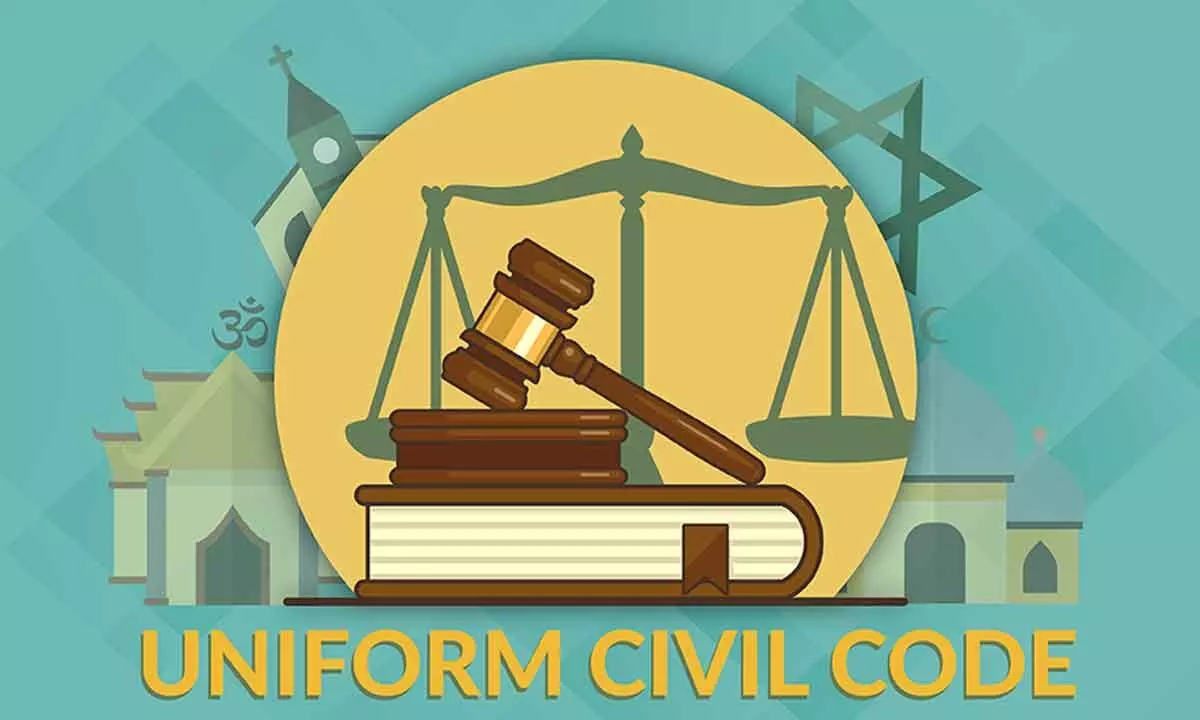Clearing ambiguity a precursor to proposed UCC

Prime Minister Narendra Modi has been repeatedly asking should India run with a system of separate laws for each community. His argument is how can there be a house where there is one law for one family member and another one for another family member, can that house function? Is what he asks.
But then there are many including the Congress Party which argue that uniform civil code in a country like India which respects plurality is not possible. They say it could end up in creating fissures and disaffection among different communities.
For example the Parsis say that adoption is not allowed in their community because conversion is not permitted. Similarly, when a male member of the community dies, his parents receive share in the property. Some say that tribal communities should be kept out of UCC.
If we take an impartial look, there is nothing wrong in its intent. The UCC proposes to standardise the minimum age of marriage for all religions and communities, outlaw extra-judicial marital norms that exploited women, prohibit polygamy and promise equal inheritance to both men and women. To that extent one cannot find fault with UCC.
But before going forward with it, the BJP government at least in its 3.0 term should first create large scale awareness, hold wide consultations on certain issues and after obtaining majority decision should pass the bill. For example the proposed mandatory registration of marriage within 30 days is something that needs to be publicised widely. Otherwise it can become a tool for any ruling party in any state to cherry pick dissenters and harass them.
There would be strong opposition from Muslim political parties. But the new government should ensure that if the UCC bill is to be passed in Parliament, care should be taken to see that no political snarls are created. It should clearly distinguish between ancestral or self-acquired property. Some are strongly opposing compulsory registration of the western concept of live in relationship that is becoming popular in India which has been resulting in violence against women and even suicides. Still the protagonists feel that registration of this relationship is not correct. May be, they feel that such relationship is a progressive measure. Though the talk of UCC has been on from various political platforms, there has been no attempt to create necessary awareness or wide consultations between government and citizens including women groups. Of course all political parties and groups who believe in policy of appeasement would pooh-pooh the UCC and will allege that it is an attempt to consolidate the majority votes. But what the government needs to explain to the common man is how this will make laws more gender equal and how they can reduce litigation.
The government needs to tell the people that even the stalwarts who had drafted the Constitution of India also believed that UCC was desirable and hence it has been included in Article 44. In Mudgal vs Union of India in 1995, the apex court said that the government should have a fresh look at Article 44 and secure UCC for the citizens. The case pertains to Hindu man marrying second time without completing divorce formalities by converting into Islam.
Those who are in favour of UCC quote the example of Goa where UCC is in vogue. They say it is working well and has not affected the normal life of any individual.
What is most important before making it a political victory based on absolute majority by the next government at the
Centre is that it should ensure that there was no ambiguity in the proposed UCC. Only then it can be called as justice for all.










